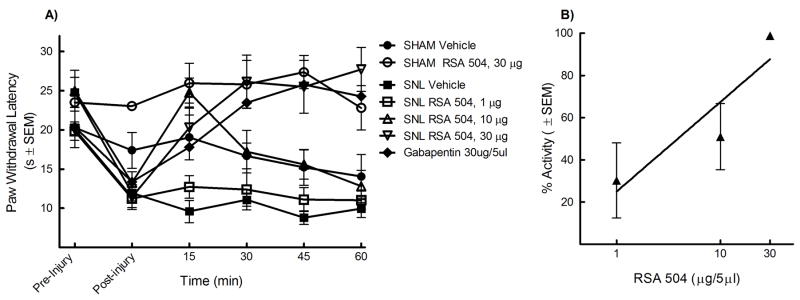Figure 3.
Thermal hypersensitivity in L5/L6 spinal nerve ligated male Sprague Dawley rats (post-injury, day 7) was significantly reversed by RSA 504: (A) Dose- and time-related curves of RSA 504 (intrathecal) in nerve injury-induced thermal hypersensitivity using infrared radiant heat applied to the plantar aspect of the hind paw ± SEM. RSA 504 significantly reversed paw withdrawal latencies at doses of 10μg/5μl (p<0.05; n=9) and 30μg/5μl (p<0.05; n=10) but not at 1μg/5μl (n=8) (p values calculated at the 30 min time point). RSA 504 significantly increased paw withdrawal latencies in sham animals (p<0.05; n=10) at the 45 min time point. Gabapentin (n=6) and morphine (n=6) significantly increased paw withdrawal latencies at all timepoints (p<0.05). No significant effect was seen in vehicle (intrathecal) treated SNL (n=8) or Sham animals (n=6). (B) Antihyperalgesic dose-response curve ± SEM for RSA 504 (intrathecal) was plotted at the time of peak effect (30 min) with an A50 value of 6.09 (3.45 – 13.96 μg; 95% CI).

